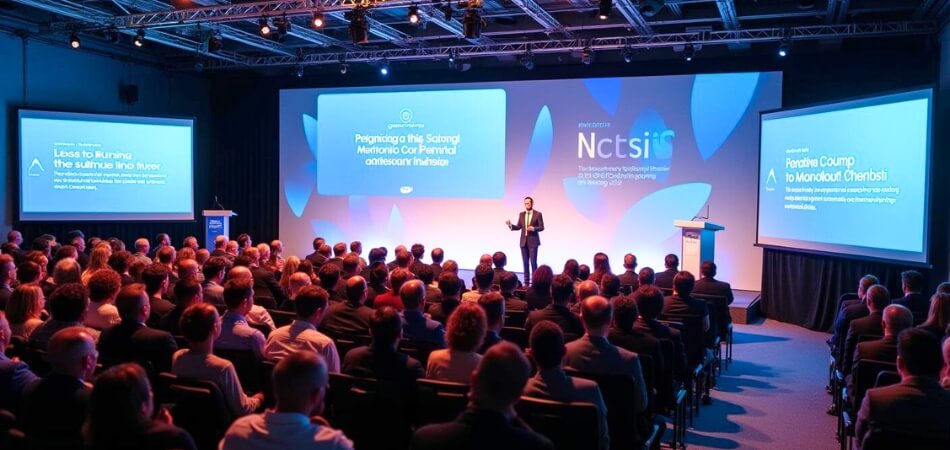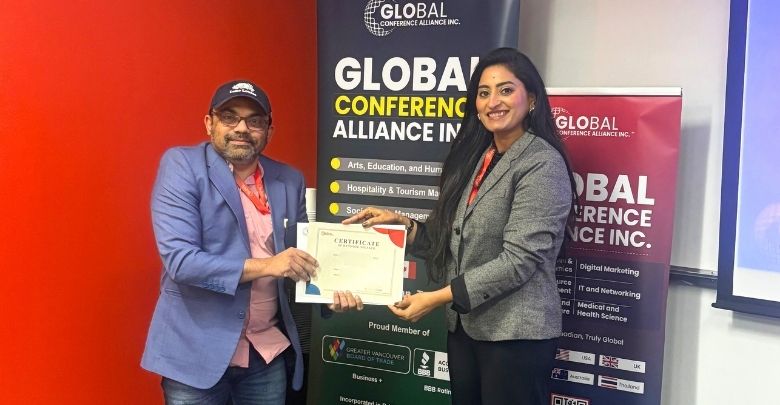The benefits of attending a business conference include learning, networking, and discovering new opportunities. But how do you know if the event was truly worth your time and effort? This brings us to the question: How can I measure the impact of a business conference I attend?
You can measure a business conference’s impact by assessing new connections, actionable insights, and ROI potential. Assess how acquired skills and knowledge align with your professional goals to determine the true value of your attendance.
Curious about the most effective ways to assess your conference experience? Keep reading to explore proven strategies and actionable tips that will ensure you maximize the impact of every event you attend!
How Can I Measure the Impact of a Business Conference I Attend? (Step-by-Step)
Business conferences can be transformative experiences, offering new knowledge, connections, and opportunities. However, their true value lies in what you take away and how it benefits your personal and professional goals. Here’s a step-by-step guide to measure the impact of a business conference you attend.
Step 1: Measure Networking Success
Assess the quality and relevance of the connections you made during the conference. Count the number of meaningful conversations and analyze how these relationships align with your professional objectives. Connections that result in collaborations or mentorship opportunities are strong indicators of a successful event.
Step 2: Reflect on the Knowledge Gained
Take time to review the notes, key takeaways, and insights you gathered. Ask yourself if the knowledge aligns with your career growth or helps solve challenges in your field. Practical insights you can apply immediately are a clear sign of value from the conference.
Step 3: Analyze Return on Investment (ROI)
Compare the expenses incurred—such as travel, registration, and accommodation—with the tangible and intangible benefits you gained. If the new skills, connections, or opportunities outweigh the cost, then the event was a worthwhile investment. ROI isn’t just financial; consider career growth as well.
Step 4: Measure Post-Conference Actions
Track actions you’ve taken as a result of attending the conference. These might include implementing a new strategy, reaching out to connections, or using new tools introduced at the event. If you attended a business conference in Canada 2025 with invitation letter, analyzing how this official document helped secure your participation or enhanced opportunities can also reflect the event’s overall impact.
Step 5: Assess Personal Growth
Evaluate how the event challenged you personally. Did you step out of your comfort zone by networking more effectively or presenting your ideas? Growth in confidence or skills is an essential measure of the conference’s impact.
Step 6: Track Long-Term Benefits
Sometimes the value of a conference isn’t immediate. Monitor how the insights and relationships from the event contribute to your career over the next few months. Long-term benefits, like career advancement or successful collaborations, are key indicators of its impact.
Step 7: Use Feedback for Future Planning
Gather feedback from colleagues or peers who also attended the event. Discuss whether the sessions, speakers, and networking opportunities met expectations. This helps you better measure the value of the conference and plan for future events more effectively.
Step 8: Make Use of Digital Tools to Measure the Impact
Use tools like CRMs to track connections and opportunities generated from the conference. Similarly, analytics tools can help monitor metrics like website traffic or inquiries resulting from your participation. These technologies offer tangible ways to assess the event’s success.
Step 9: Compare to Your Pre-Conference Goals
Revisit the goals you set before the conference. Whether it was meeting a certain number of people or gaining expertise in a particular area, check how many were achieved. This comparison highlights the event’s alignment with your expectations.
Step 10: Reflect on Overall Satisfaction
You should also consider how satisfied you feel about attending. Did the conference leave you motivated, inspired, and better equipped for your professional journey? Your overall satisfaction is a subjective yet significant measure of the event’s value.
Measuring the impact of a business conference requires thoughtful reflection and analysis. By following these steps, you can ensure that every event you attend adds measurable value to your professional growth. Start analyzing today and maximize the full potential of your conference experiences.
Measuring Networking Success: How to Quantify Connections?
Networking is one of the most valuable aspects of attending a business conference, but its success can feel intangible. Measuring the value of your connections helps you figure out how effective your networking efforts were and what steps to take next. Here are practical ways to quantify your networking success.
Count the Number of Meaningful Connections
It’s not just about how many people you meet but the quality of those interactions. Assess how many of your conversations went beyond introductions and involved exchanging ideas, insights, or opportunities. A meaningful connection aligns with your professional goals or opens doors for collaboration.
Evaluate Follow-Up Engagements
A strong network isn’t just built at the event; it’s maintained afterwards. Track how many of your new contacts respond to your follow-up emails or LinkedIn requests. If they engage actively, whether through email replies, meeting requests, or shared opportunities, it’s a sign of effective networking.
Assess the Potential for Collaboration
Consider the number of contacts who expressed genuine interest in collaborating or sharing resources. Measure how many connections have led to actionable outcomes, such as scheduling meetings, exchanging referrals, or planning joint ventures. The potential for collaboration is a direct indicator of networking success.
Monitor Long-Term Value
Sometimes the true worth of a connection takes time to materialize. Keep track of the contacts who stay in touch and offer support or opportunities over the months following the conference. Long-term, sustainable relationships are a hallmark of successful networking efforts.
Networking is more than collecting business cards—it’s about building relationships that offer mutual value. By measuring your success using these steps, you can make meaningful improvements in your networking strategy and maximize the benefits of every conference you attend.
Role of Post-Event Certifications in Measuring Conference Impact
Attending a business conference isn’t just about networking and gaining knowledge; earning a certification can significantly enhance its value. Certifications provide tangible proof of your participation and the skills or insights you gained. Here’s how post-event certifications help measure the impact of a conference.
Showcasing Professional Growth
Certifications validate the skills and knowledge acquired during a conference. Whether it’s a technical skill or an industry insight, these credentials are evidence of your professional development. Professionals who get a certificate after attending a conference often find it easier to demonstrate their expertise to colleagues or employers.
Enhancing Your Resume and Portfolio
Adding a certification from a well-recognized event boosts the credibility of your resume or portfolio. It highlights your proactive approach to learning and staying updated in your field. Certifications also stand out to employers, showing that you invest in your expertise and professional growth.
Quantifying Conference ROI
Measuring the return on investment from a conference can be challenging, but certifications offer a concrete metric. They provide tangible evidence of the value you received, making it easier to justify the cost of attendance. Employers or stakeholders also value these credentials when evaluating your participation.
Increasing Networking Opportunities
Earning a certification can help you stand out in a crowd and create new opportunities for connections. Other professionals may see your credentials as an indicator of expertise, sparking discussions or collaborations. It’s a simple yet effective way to enhance your professional image.
Certifications add a measurable and meaningful layer to your conference experience. They not only validate the time and resources you invested but also create lasting value for your career. Making use of these credentials strategically ensures you maximize the benefits of attending professional events.
Factors That Influence the Overall Conference Experience
Business conferences can be transformative experiences, but the quality of your experience often depends on several factors. From preparation to engagement, several elements shape how much you gain from the event. Here are key factors that influence the overall conference experience.
Quality of Networking Opportunities
The people you meet at a conference play a significant role in your experience. Engaging with professionals who align with your goals or inspire you can make the event more valuable. Strong networking opportunities lead to meaningful connections and lasting collaborations, enhancing your professional growth.
Relevance of Content and Sessions
The alignment of a conference’s content with your interests and professional needs greatly impacts its value. Keynote speeches, workshops, and breakout sessions that offer actionable insights and address industry challenges add depth to your experience. Relevant sessions keep you engaged and provide practical takeaways.
Level of Personal Preparation
Preparation can significantly enhance how much you gain from attending. Researching speakers, creating a schedule, and setting clear goals before the event ensure that you’re making the most of your time. For international events, knowledge of Canada business conference visa requirements ensures a smooth entry process and allows you to focus entirely on the conference itself.
Conference Venue and Logistics
The convenience and comfort of the venue can influence your overall experience. Factors like accessibility, layout, and amenities contribute to how smoothly you can get through the event. A well-organized venue ensures you can focus on learning and networking without unnecessary distractions.
Post-Event Engagement
Following up after the conference determines how well the experience translates into real-world benefits. The connections you maintain and the insights you implement shape the long-term impact of the event. Meaningful post-event engagement adds lasting value to your participation.
The overall conference experience is shaped by a mix of preparation, engagement, and follow-through. By focusing on these factors, you can ensure that every conference you attend is impactful and adds genuine value to your personal and professional journey.
Measurement of Conference Impact: Avoiding Common Mistakes
Measuring the impact of a business conference can be tricky, especially if you don’t approach it with a clear strategy. While it’s easy to focus on surface-level outcomes, true value lies in deeper analysis. Here are some common mistakes to avoid when evaluating your conference experience.
Focusing Only on Immediate Results
One common misstep is judging a conference solely by short-term outcomes, like how many business cards you collected. While these are helpful indicators, they don’t always reflect long-term value. Give yourself time to assess the connections, insights, and opportunities that develop over weeks or months.
Overlooking Networking Quality
The number of contacts made can lead to misleading conclusions when measuring networking success. Instead of focusing on quantity, evaluate the quality of your interactions and the relevance of the people you meet to your goals. Building meaningful connections matters more than expanding your contact list.
Ignoring Pre-Conference Goals
Failing to compare outcomes to the goals you set before the event can make it hard to determine its true impact. Without clear objectives, it’s challenging to measure success. Revisiting your pre-conference expectations helps you understand how well the event met your needs.
Neglecting to Track Post-Event Actions
A significant mistake is not following up on the leads, knowledge, or opportunities gained at the conference. Connections or insights have little value if they aren’t acted upon. Tracking how you implement what you learned ensures the conference’s impact is maximized.
Not Using Tangible Metrics
Evaluating a conference based solely on subjective impressions can lead to incomplete conclusions. Use measurable data, like new business leads, collaborations initiated, or skills applied in your work. Tangible metrics provide a clearer picture of the event’s value.
Avoiding these mistakes can transform how you measure a conference’s impact. By focusing on meaningful metrics and long-term outcomes, you’ll gain a deeper understanding of the value each event brings to your professional growth.
Frequently Asked Questions (FAQs)
Business conferences can raise questions about what to focus on and how to evaluate them effectively. Here are some frequently asked questions to guide you in analyzing the value of your participation.
Can Networking Success Be Measured Quantitatively?
Yes, networking success can be measured using metrics like the number of meaningful connections made or follow-up responses received. It’s also helpful to track collaborations or referrals that emerge from these connections. Quantitative measures provide clarity while complementing qualitative assessment.
Should I Include Informal Takeaways When Measuring Conference Impact?
Absolutely. Informal takeaways, like a motivational boost or creative inspiration, are invaluable. While these might not have immediate measurable outcomes, they often influence your mindset and productivity, leading to long-term benefits that should be acknowledged.
Is Attending Smaller Workshops as Impactful as Larger Keynote Sessions?
Smaller workshops often offer more interactive and personalized learning experiences. They can be just as impactful, especially if they address specific challenges or skills relevant to your goals. Analyze how the session content contributes to actionable takeaways and new insights.
How Can I Assess the Impact of Virtual Conferences?
Virtual conferences can be measured similarly to in-person ones. Track connections made through networking tools, evaluate the relevance of content delivered and analyze engagement levels. Feedback surveys and digital interaction metrics can further quantify their impact.
Should I Include Feedback from Colleagues or Peers when Assessing Conference Impact?
Yes, gathering feedback from colleagues who attended with you adds valuable perspectives. Their insights on sessions or speakers you missed can complete your overall evaluation. Collaborative feedback ensures a well-rounded learning of the event’s effectiveness.
Final Words
There is more to attending a business conference than simply showing up; it is about what you learn and how you use it. So, how can I measure the impact of a business conference I attend? The answer lies in reflecting on your goals, connections, and outcomes.
Assess the quality of your networking, the relevance of insights gained, and how effectively you applied them post-event. Look beyond immediate results and focus on long-term benefits, like collaborations or career advancements, that stem from your participation.
By taking the time to measure the impact thoughtfully, you’ll not only understand the value of the conference but also maximize its benefits. Let each event you attend be a stepping stone toward your professional growth and future success.








